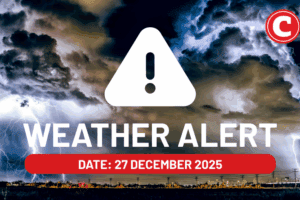The heads of seven southern European states pledged Wednesday to up their efforts to tackle one of the most stubborn thorns in the EU's side: flows of migrants from war-torn and impoverished countries.
The leaders of Cyprus, France, Greece, Italy, Malta, Portugal and Spain, meeting in Rome for a working dinner, released a statement saying they were “firmly committed to a common European policy on migration”.
The “Southern Seven” tackled issues such as the future of the eurozone and efforts to propel growth, but from crowded reception centres in Greece to boats heading for Spain, the top topic was migrants.
Those on the frontline for arrivals despair of the reluctance of some European countries — such as Poland or the Czech Republic — to share the reception burden.
“We must fight together to put in place a migration policy that shows solidarity with the countries that receive these significant flows,” Greek Prime Minister Alexis Tsipras told the press.
France’s President Emmanuel Macron also slammed the “inconsistencies” in Europe’s Dublin asylum rules which force those countries which serve as points of arrival in Europe to shoulder the crisis.
The call for a “determined effort” to improve the system however steered clear of mentioning the EU bid to relocate migrants — a bid that has angered some countries or been flatly ignored.
For Italy, 2017 was a turning point: the country went from large-scale arrivals in the first six months to a sharp drop-off, thanks to controversial agreements in Libya.
Some 119,000 people landed in Italy last year, down 35 percent on 2016.
Italian Prime Minister Paolo Gentiloni boasted of the “encouraging results in the control of (migrant) flows and the fight against human trafficking” and urged Europe to make sure the results would “now be consolidated”.
For its part, Spain saw a notable increase in Algerians and Moroccans sailing in, from 6,000 attempting the crossing in 2016 to nearly 23,000 picked up last year.
In Greece, an accord struck between the EU and Turkey limited the number of arrivals to 28,800 — six times fewer than in 2016 — but it did not solve the problem of caring for those who had already made the journey.
– Under pressure –
The toll of dead or missing in the Mediterranean dropped from nearly 5,000 during crossings in 2016 to 3,116 in 2017, mostly off the coast of Libya.
But the start of 2018 has seen some grim statistics.
Between 90 and 100 migrants were missing after their makeshift boat sank off Libya, the country’s navy said late Tuesday. Ten migrants also died last weekend and dozens more are missing after their boat sank.
But apart from rescues at sea, asylum applications — and the inevitable delays and lengthy appeals — have placed great strain on some countries.
Greece is struggling to deal with more than 50,000 migrants and refugees, 14,000 of whom are crammed into tents or centres on overcrowded Aegean islands.
In Italy, the authorities have stopped providing details on the number of asylum seekers housed in its reception centres, with the last available figures showing there were nearly 200,000 last spring.
Spain has faced a backlash over the state of the detention centres where migrants are held before being expelled.
– Humanitarian corridors –
Italian Interior Minister Marco Minniti — the man behind the Brussels-backed deal with Libya to block migrants from setting out for Europe — has urged the EU to follow Rome’s lead on humanitarian corridors.
Three days before Christmas, Italy welcomed a group of 162 Ethiopian, Somali and Yemeni refugees who flew directly in from crisis-hit Libya.
Some 10,000 refugees are expected to follow in 2018, Minniti said — provided they are spread across the EU.
With France also facing a record increase in asylum applications, the migration issue is expected to figure at a bilateral meeting Thursday between Macron and Gentiloni.






